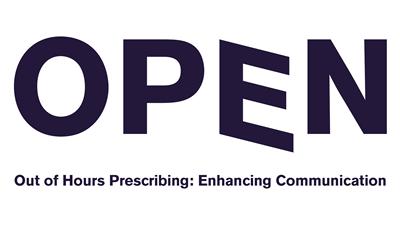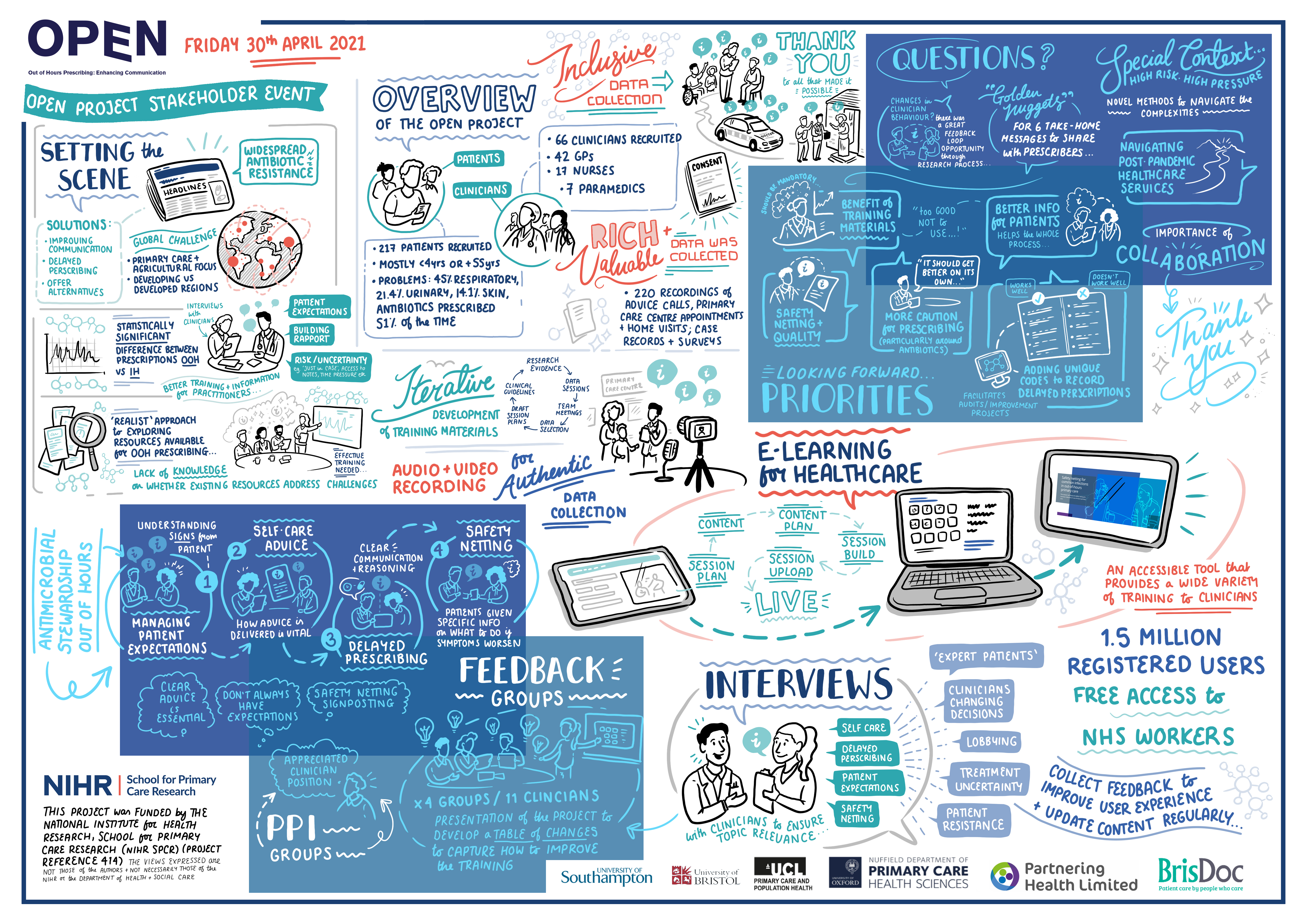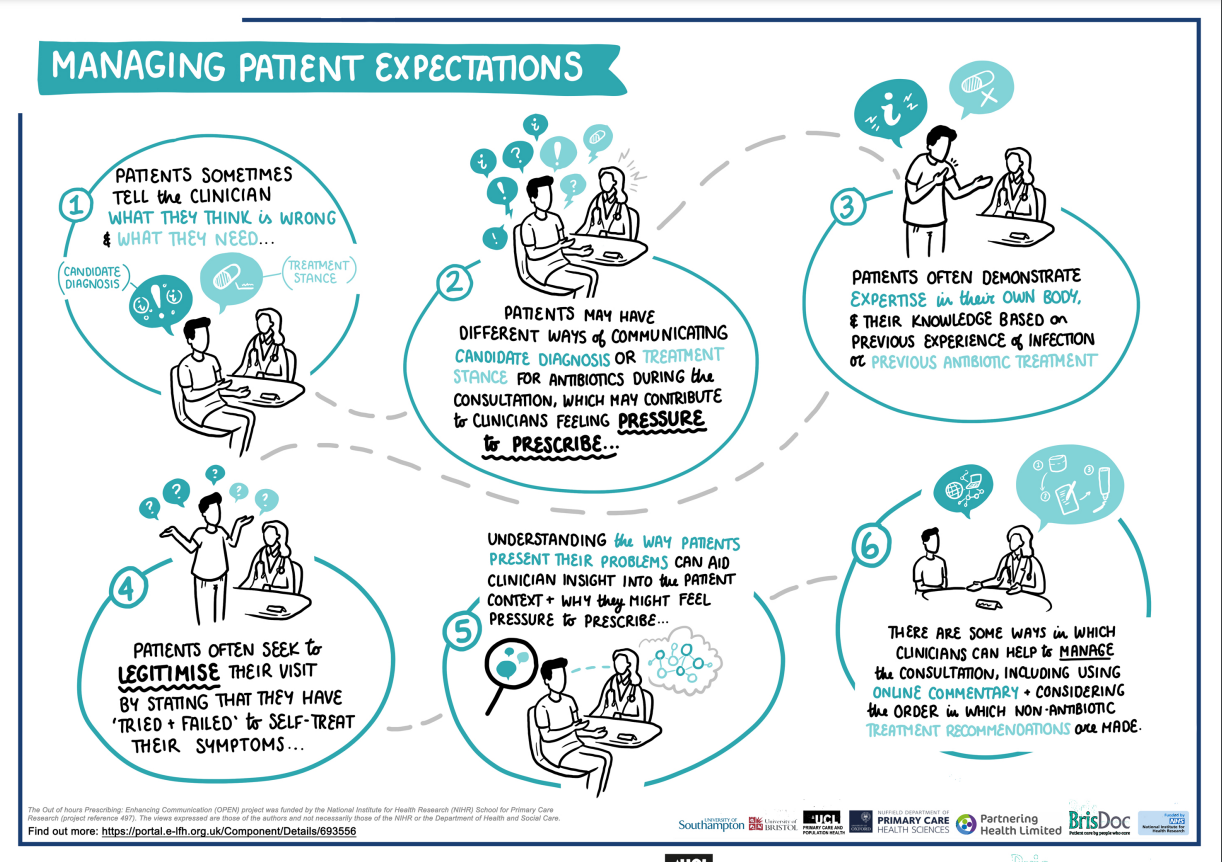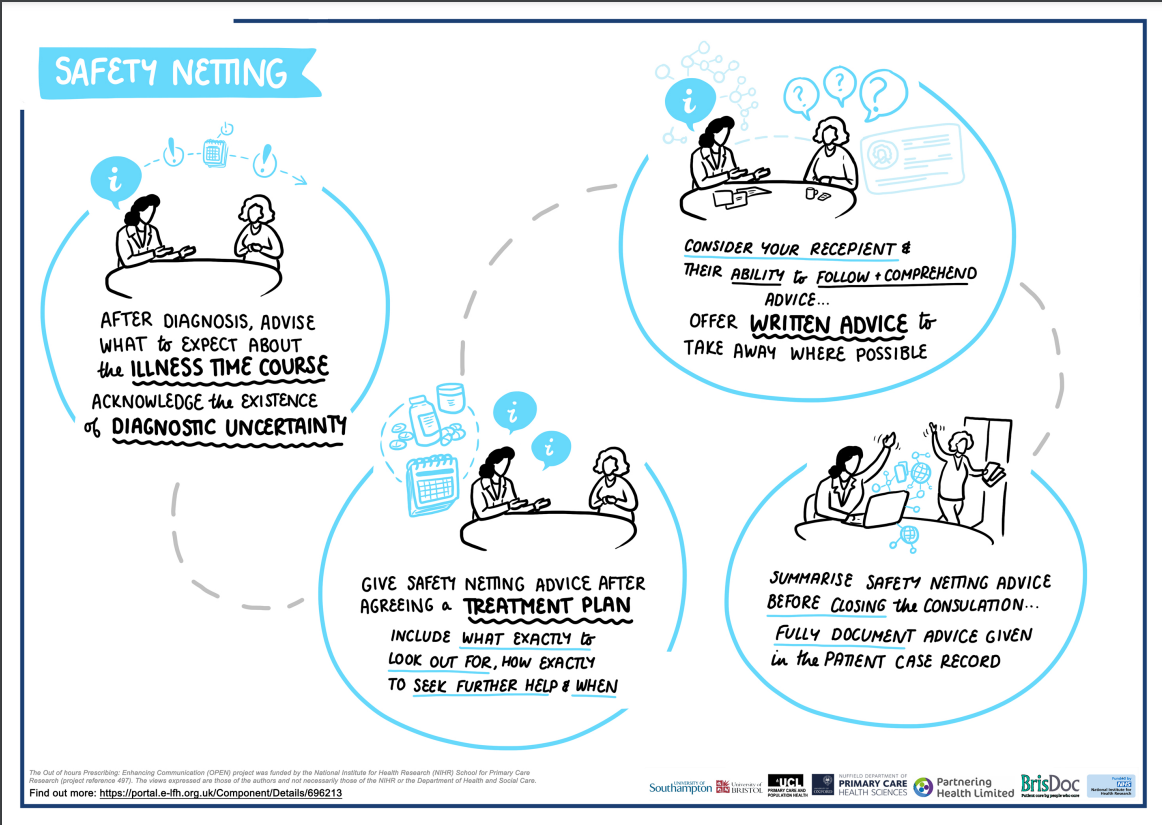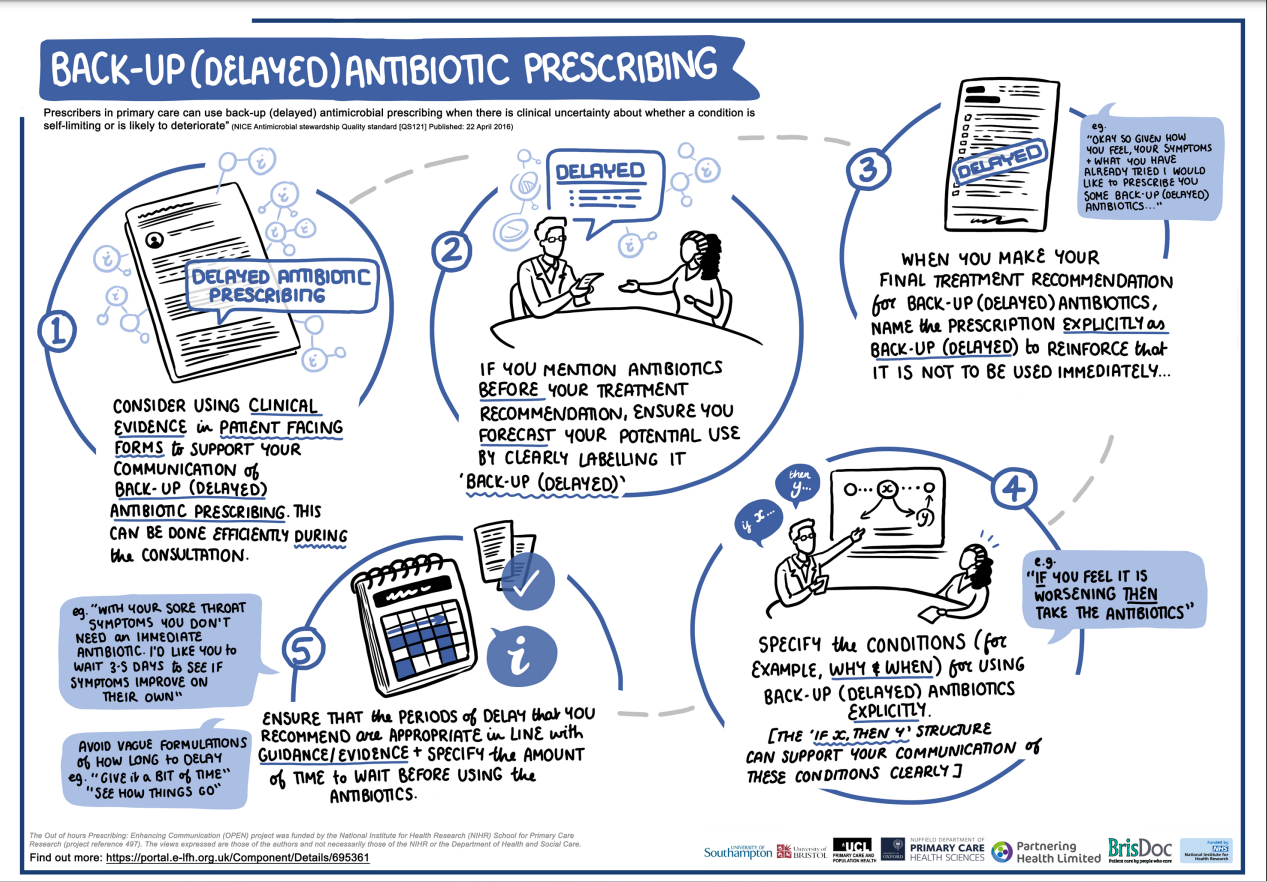In the UK, the NHS has been invested in improvement via public health campaigns, clinical guidelines for treatment of common infections and local monitoring/feedback on numbers of antibiotics prescribed.
In primary care, most of the research to-date has focussed on GP prescribing during usual surgery hours rather than prescribing out-of-hours (OOH), despite the fact that many different prescribing professionals work OOH, and evidence that antibiotic prescribing is increasing in this setting. Prior research has indicated that the ways that prescribers and patients (or patents / carers) talk to each other about medical problems can impact upon the ultimate treatment decision (i.e. whether antibiotics are prescribed or not). Moreover training prescribers to communicate about antibiotics in ways that incorporate explanations about symptoms (e.g. how long a virus can last for) and treatment (e.g. why antibiotics might not be appropriate to treat a virus) has been shown to be effective in promoting less overuse and misuse.
The proposed research will record a range of different types of consultations that can happen OOH (telephone calls, primary care centre visits and home visits) between different prescribers (GPs, nurses, pharmacists, paramedics) and patient groups (or parents / carers) in three organisations serving people across the South and West of England.
This data will be used to understand antibiotic prescribing patterns. Findings from this research will be used to develop communication training that will guide prescribers (on a step-by-step basis) in how to talk about antibiotics in ways that promote shared understanding and prudent prescribing practices.
Local Investigators: Geraldine Leydon, Catherine Woods, Michael Moore, Beth Stuart, Paul Little
Funder: NIHR SPCR FR16 project reference 414
Duration: Start date 01.04.18 End date 30.09.20
Contact: G.M.Leydon@soton.ac.uk or Catherine.Woods@soton.ac.uk
Related research group: Primary Care Group
